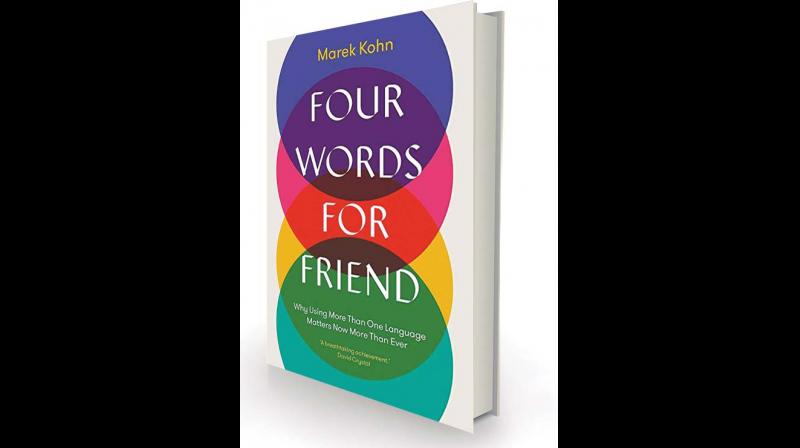Making the case for multilingualism, a timely reminder
The reception of even robust scientific results is, naturally, distorted by culture and ideology.

English as the world’s lingua franca isn’t going anywhere. Why, then, should we Anglophones bother to learn another language? What’s in it for us? And what, more seriously, are the implications if we decide not to bother?
Digging deeply into these questions, Marek Kohn’s book asks what it actually means to have some mastery of another language (is that the same as being ‘fluent’, or being able to ‘speak’ another language?), and looks at language acquisition, at how the language we happen to speak can alter perception, whether there are cognitive benefits to multiple language use, and what roles the state can play in determining how languages are valued or stigmatised.
The answer, in each case, is — unsurprisingly — ‘it’s actually quite complicated’. But Kohn expresses the complexities with great lucidity, making them precisely the reason the subject is interesting at all. Kohn is a science writer, and while he uses dizzying numbers of scientific studies to further his arguments, he’s especially engaging on their failings: why are some of these studies contradictory or unreliable or misleading? We don’t get any easy answers. What we get instead is something more frustratingly inconclusive, but richer too.
The reception of even robust scientific results is, naturally, distorted by culture and ideology. Kohn touches upon some of the circumstances that have led to people in the UK being harassed for the audacity of not speaking English in a public place (we’ve all seen footage). He is cautious about judgment, though, preferring to consider generally the ways in which a language might be used to define the boundaries of a group: to define who are the ‘insiders’, and therefore also, by exclusion, who are the outsiders. (I’d argue the nativist implications of this, illogical and hypocritical though they are, are even darker than he acknowledges.)
Most people with a habit of using more than one language (including heritage speakers like Kohn and me) comfortably understand languages as complementing one another, rather than competing for exclusive territorial rights. At a literary event some years ago, a novelist was asked if she was most comfortable expressing herself in language A (in which she wrote her novels) or language B (in which she lived and spoke to her family). She answered that she was most comfortable in an environment in which she could use both. Of course: the expressive possibilities expanded when she could use all the extensive linguistic resources at her disposal.
Cognitive advantages among the bilingual are many and convincing — more flexible, less essentialist thinking, more insight into different ways of communicating, and so on. (The question of whether bilingualism can slow the symptoms of dementia is more complicated.) Meanwhile those occasional arguments against bilingual child-rearing are usually couched in terms not of ‘total’ language acquisition but acquisition of the dominant language — not how much will a child learn altogether but how will their English be with or without a second language added. Evidence suggests the effect on the latter is only a matter of speed — that dominant language will reach full strength in time.
Kohn also braves the much contested question of the relationship between language and thought, and in his small-scale examples, his evidence is particularly fascinating. (Why are speakers of some languages better at remembering details of accidents?) It’s obvious that different languages enable you to do different things; but they also compel you to do different things. If Russian has four words for friend, not only can you choose between four ways of describing somebody; you must. You have no choice but to testify to where on the friendship scale this person belongs.
And while monolinguals might be less likely to notice this, our languages have emotional freight for all of us, not always positive. Examining a group of people who move country as children, one might expect their original language to be most well-embedded and resistant the older the child at the time of the move. Yet the opposite was the case with a group of Jews who left Dusseldörf from the late 1930s; the later they held out before leaving — and the more distress they experienced as a result — the less German they’d retain.
The emotional can inhibit the rational too. Did you know you’re more likely to make rational decisions if you gamble in a foreign language, or when faced with the ‘trolley problem’ depending on which of your languages it’s presented in? What are the implications, then, for a negotiation being carried out between two parties in a language that is native (and more emotionally loaded) to one, and foreign (and more rationally activated) to the other? It’s not hard to think of examples.
Kohn ends his book with a prediction —not a bold one, but a convincing one nonetheless. Among other things, he doesn’t hold out much hope of the Anglosphere learning to value other languages. Readers of this book will have no doubt how badly we will lose out as a result.

